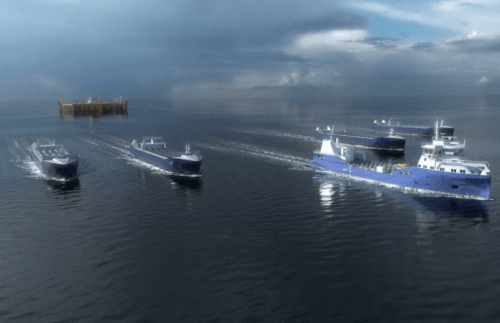The European Union has provided more than 20 million euros to a pioneering project in Norway to advance autonomous ship technology.
The funding, one of the largest grants of its kind ever given in Norway, will help the project known as AUTOSHIP which seeks to demonstrate the use of two autonomous vessels in Europe’s short sea shipping and inland waterways sector.
Led by maritime technology firm KONGSBERG with Norwegian research organization SINTEF, the AUTOSHIP project will aim to test and develop key technology linked to fully autonomous navigation systems, intelligent machinery systems, self-diagnostics, prognostics and operation schedule, and communication technology. The project will also create a roadmap for commercializing autonomous shipping in the EU in the next five years.
The funding is provided by the EU research program Horizon 2020, as well as the Research Council of Norway.
In recent years, the Norwegian maritime cluster has emerged as a leader in the advancement of autonomous ship technology.
“The AUTOSHIP project gives Northern Europe with Norway a leading edge in developing the next generation of autonomous vessels. The race is underway internationally. The technology contributes to safer, more efficient and sustainable operations at sea, both in transport and aquaculture. The project now receives one of the largest allocations from the EU’s Horizon2020 program to a Norwegian player ever. This is a NOK 200 million mark of quality,” says Iselin Nybø, Norway’s Minister of Research and Higher Education.
Eidsvaag Shipping’s general cargo ship Eidsvaag Pioneer will be one of two vessels used in the AUTOSHIP project. The vessel will be equipped with remote-operated and autonomous maritime transport systems while operating along the Norwegian coast and in vulnerable fjord areas where it carries fish feed to fish-farms.
“We will demonstrate that it is possible to remotely operate several ships from land and over large geographical areas. The technology is used in different ways on the vessel to show that the solutions can be applied widely. This is a market with a significant potential,” says Egil Haugsdal, CEO of Kongsberg Maritime.
A second vessel to be used in the project will be a Belgian pallet shuttle barge owned by Blue Line Logistics NV. The vessel operates on canals in Europe, transporting goods to and from large container ports.
Europe’s inland waterways has been identified as one sector that can benefit from major environmental gains by using new autonomous technology. Just one autonomous barge in operation is expected to take around 7,500 trucks off the roads each year and will result in reductions in both traffic congestion and emissions.
“There is increasing market demand for waterborne transport in the EU. The results of the AUTOSHIP project will lead to safer and greener transport in Europe with one of the major outcomes being a shift of goods transport from roads to waterways,” added Haugsdal.
“We will contribute by developing cloud-based communications systems and advanced simulations to test and ensure that the autonomous vessels operate safely and optimally,” says Hege Skryseth, the CEO of Kongsberg Digital.
